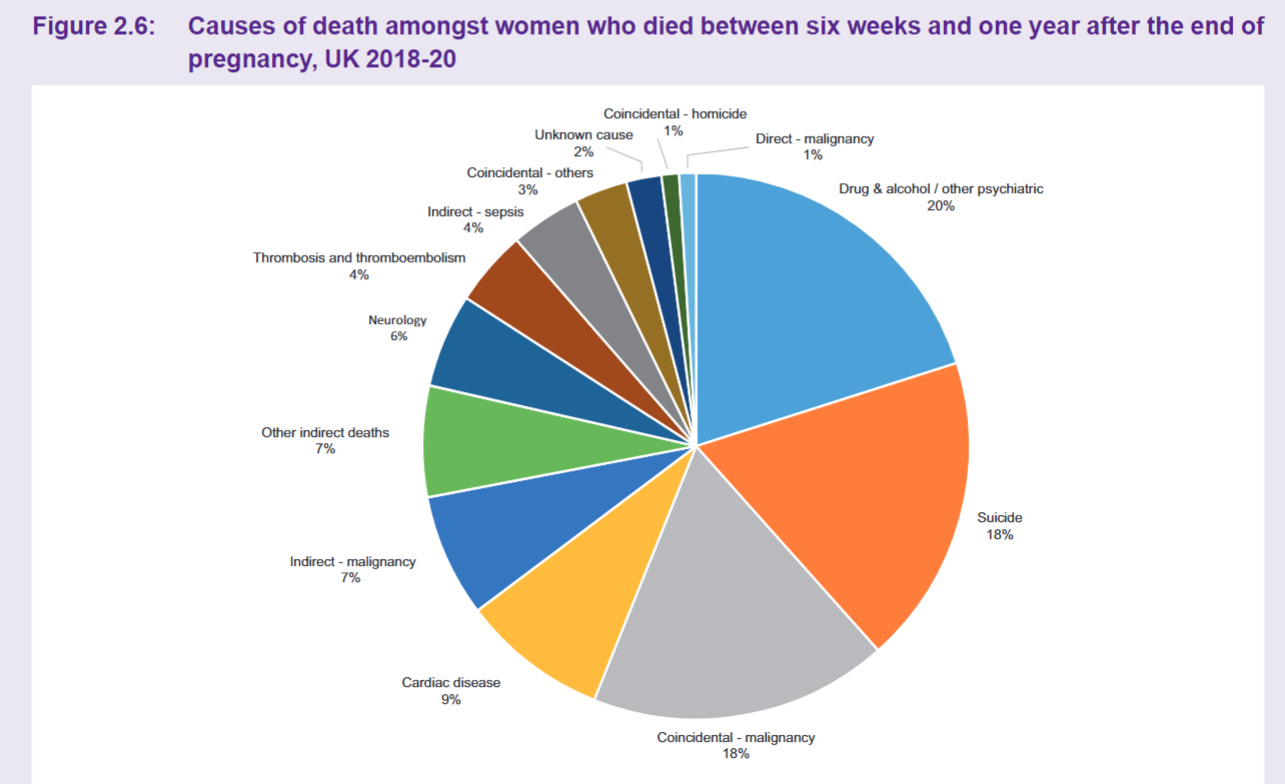The BBC and other media outlets have publicised a disturbing claim in a Parliamentary report, that racism has played “a key role” in the deaths of pregnant mothers.
End racial disparities in maternal deaths – MPs. An MPs' report is calling for faster progress to tackle "appalling" higher death rates for black women and those from poorer areas in childbirth.
The Women and Equalities Committee report says racism has played a key role in creating health disparities.
But the many complex causes are "still not fully understood" and more funding and maternity staff are also needed.
https://www.bbc.com/news/health-65300168
This is mostly based on a previous official report from: Maternal, Newborn and Infant Clinical Outcome Review Programme November 2022 Saving Lives, Improving Mothers’ Care: Lessons learned to inform maternity care from the UK and Ireland Confidential Enquiries into Maternal Deaths and Morbidity 2018-20. (They have added some interviews with mothers who felt that their concerns were ignored for racist reasons).
https://www.npeu.ox.ac.uk/assets/downloads/mbrrace-uk/reports/maternal-report-2022/MBRRACE-UK_Maternal_MAIN_Report_2022_v10.pdf
The first thing to note is that pregnant mothers are very safe, with a death rate of 6 per 100,000. Even taking a year-long period, and including indirect causes, deaths are extremely rare. Suicide and drugs/alcohol are prominent causes of the few deaths recorded, with cardiac disease and Covid of equal impact. (Hatched bars show direct causes, solid bars indirect causes).
So, for example, Covid was an indirect cause of death, because it happened more widely, and not because of pregnancy.
Half the causes of death are not obstetric. This should be a warning bell about the interpretations later placed on the data.
Later data show that the greatest predictor of later death was pre-existing medical problems including obesity. Obesity is also given as a primary cause. Not receiving advice is also noted as a cause, though not clear if this can be due to not taking advice despite ante-natal classes being offered. Some of the case histories mention this, and it would be relevant to understanding causes, and could be compared to the take up of vaccinations.
Table 2.9 gives us the figures on regarding race differences, the subject of media attention on the Parliamentary statement, but also prominent in the summary of the research report.
The numbers, mercifully, are small. Childbirth is safe in the UK. The White European results are the only one sizeable enough to merit detailed examination, and they show that direct and indirect causes are of almost equal power, slightly favouring indirect. The racial group deaths are few, and some noise is to be expected.
To put this report into context, as regards UK Black Caribbean mothers, we are talking about 3 direct deaths, 6 indirect, so 9 in all. Black Africans (who probably have spent more of their lives in Africa), are 5 direct, 8 indirect, 13 in all. Combine the two, 8 direct, 14 indirect. Tiny numbers, but favouring indirect causes.
Here are the calculations of rates per 100,000
The rates per 100,000 differ considerably, but the base populations also differ considerably, and there are 18 times more whites than blacks. When events are very rare it is probably better to give absolute results, rather than relative risk odds ratios, which could be misleading.
In my view the main finding is that some mothers are unwell prior to childbirth, and often die for reasons not directly caused by childbirth. Some of those causes of ill health are self-imposed.
The Parliamentary group seems to have gone overboard on a racism explanation for which there is no evidence in this study. Indeed, there is virtually no data analysis in this report at all. They give the basic demographics, but few if any two by two tables. They do not show correlations, nor do they construct and test any explanatory models. Can they predict from their findings what puts women at risk? Drugs, drink, being overweight? Little from the authors on these necessary questions. A simple multiple regression on the total sample would have been instructive. The list of participants is impressive, the data analysis rudimentary, and the use of relative risk over-dramatic given the very big differences in sample sizes.
As is usual, they give stern lectures to service providers about the need to further educate themselves. They say less, if anything at all, about mothers keeping themselves healthy, for their own sake, and of their babies.








I think that the issue is not racism per say but there are structures out there that have elevated the problem. For instance, it seems like doctors are often abusing C-sections when unnecessary which are known to drastically increase death rates. African-American women seem to have a higher likelihood of having those treatments. A lot of states without Medicaid also appear to have higher black populations. What’s interesting is that African immigrants have a child mortality rate closer to whites. There is just a lot of factors involved and we don’t have all the answers. Obesity doesn’t explain enough of the variance, and it seems like hey maybe we should look more into the grievances of these black women who are saying they weren’t treated properly in these situations. It’s certainly worth looking at but we shouldn’t assume right away that that is a main contributor without further evidence.
Thanks for the post, cleared some things up for me hearing similar things in the states